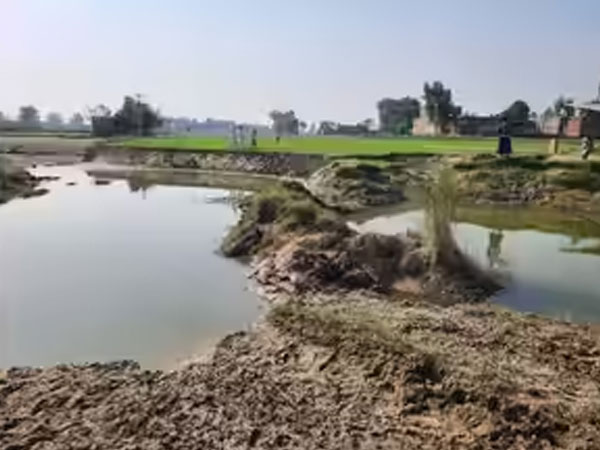 Bathinda: Paddy harvesting in only one-third area (31.58%) till Oct 20, coupled with uncertainty over how top soil will behave in flood-hit areas due to accumulation of silt and soil, may affect the health of the next crop (wheat) in Punjab, feel experts.
Bathinda: Paddy harvesting in only one-third area (31.58%) till Oct 20, coupled with uncertainty over how top soil will behave in flood-hit areas due to accumulation of silt and soil, may affect the health of the next crop (wheat) in Punjab, feel experts.
Experts feel if various factors around time of wheat sowing are taken into account, there is strong possibility of sowing getting delayed beyond the ideal time, which is till Nov 15.
As per Punjab Agriculture University, the recent floods in the state have altered soil texture and reshaped its profile. It said this is capable of disturbing the delicate balance of nutrients as silt deposits at certain places are 2-3 feet in thickness. PAU has also warned of all this affecting soil fertility.
Usually, paddy harvesting is nearly complete by the last week of Oct and most of the sowing is done in the next 15-20 days. However, due to unpredictable weather conditions and rains continuing till Oct 8-9, harvesting has been delayed. As per experts, if less than 32% harvesting has been done by Oct 20, it may take two-three weeks more to complete the process. The delay in paddy harvesting is directly linked to sowing of the next crop and makes its impact positive or negative impact.
As per information gathered from flood-hit areas in Punjab's all three regions of Malwa, Majha and Doaba, levelling fields where silt or sand has been deposited by up to 1 metre is a time-consuming process. Though many philanthropists and activists from farm organisations have reached out to farmers with tractors to level their fields, flattening each and every field will take time. "There are a number of people with tractors to level the fields, yet it is taking a lot of time. This is because the extent of land that has been hit by silt and floodwater is vast," said farmer Joginder Singh from Baupar Mand area in Sultanpur Lodhi.
"A number of tractors have spent entire days in levelling my field. Though they have completed work in some fields, a lot area is still left and this will affect wheat sowing," said farmer Krishan Chand in Dona Sikandari village in Fazilka.
PAU vice-chancellor Satbir Singh Gosal said PAU had conducted studies in various places marooned by floods where sand deposits had been recorded and other districts where rains in the early part of Oct considerably impacted harvesting. "All this is happening due to climate change which is likely to impact wheat sowing and its yield. As per science, a delay of one week in wheat sowing after Nov 25 could reduce chances of yield loss by 1.5 quintal per acre," he said.














© Copyright 2025 The SSResource Media.
All rights reserved.